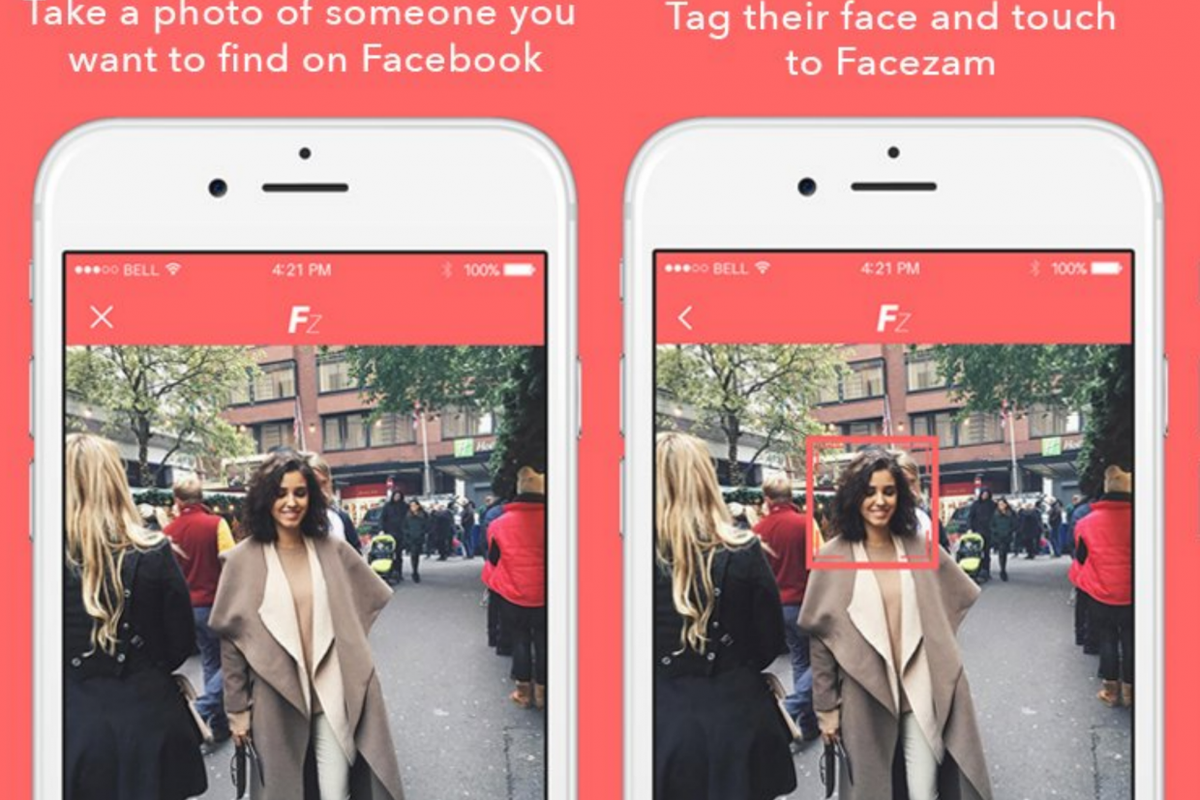
A recent hoax is making headlines after Facebook users fell for a viral marketing campaign claiming to be able to identify strangers from a photograph that was then matched to their Facebook profile photo. The app, which was called Facezam — after the similar music identifier, Shazam — raised serious questions about internet privacy.
Facebook earlier blocked NameTag, a Google Glass recognition app that would have performed similarly. Later, Google also banned the technology.
Though Facebook said that such an app would violate user privacy, that sort of facial-recognition technology is not unheard of. Currently, Facebook and Google group photographs together, telling users who should be tagged. Law enforcement uses facial recognition, as do companies hoping to map customer demographics.
Recent developments in facial-recognition technology have paved the way for facial recognition to allow a person to make purchases, book a variety of tickets, and even unlock things — all by looking into a lens. While this promises a potentially easier pathway to security, there's still the capacity for human error, or worse, malicious intent.
On Russian network VKontakte, Find Face lets users look each other up online with a photograph that matches faces in profile pictures. While it was supposed to offer the chance to find friends, it has been used to expose identities, harass people, and even out certain activities to victim's family members.
Blippar, a British augmented-reality company, has a similar search, though it only has the capability to scan faces in its database such as politicians, musicians, and users who choose to add themselves.
Facezam claimed to be able to scan billions of Facebook profile images every second by utilizing a database for developers, then linking photographs with profiles in a 10-second timeframe.
Jack Kenyon, identified as a British entrepreneur and founder of the fake app, claimed to have believed that the technology might help to reduce crime by making anyone identifiable. In an interview with the Telegraph , he also mentioned that it was impossible to predict the public implications, adding that “Facezam could be the end of our anonymous societies. Users will be able to identify anyone within a matter of seconds, which means that privacy will no longer exist in public society.”
Though the app is merely a hoax by British marketing agency Zacozo (for whom and what, it is unclear, though it seems likely that it is to demonstrate their prowess in creating viral content), it is perhaps a very real threat. The Facezam website, which now identifies it as a hoax, hints at a slightly darker reality: “Thankfully, face-matching apps don't currently exist in the West. We hope it stays that way.”
But not existing and not being possible are two different things.
In a panel at the recently held SXSW, privacy expert Cory Doctorow, the FBI’s Christopher Piehota, and facial-recognition company Kairos founder, Brian Brackeen, talked about the use of biometric surveillance and potential impacts that it may have. Increasingly, biometric technology, including facial recognition, are available. The problem, as demonstrated by the Facezam scare, is that there is little to no oversight for these systems.
“We are not comfortable with the lack of regulation,” Brackeen mentioned in the panel, and it is unlikely that anyone else is either. And as technologies become more accurate (Kairos can offer up what percentages of race a person is), the threat to privacy can seem more real. Brackeen is confident that Kairos can and will be used responsibly, but what about the others?
Doctorow mentioned that the FBI has access to a database containing a half-billion images used for identification purposes, but he believes that there needs to be more information given to the public on how and when these databases are being used. He believes that transparency is key — especially now.
With the added boost of AI, facial recognition is one of the MIT Technology Review's technologies of the year. “It’s not so much facial recognition itself as a technology; it's the new applications that facial recognition is making possible,” editor at large, Brian Bergstein, told Salon. “What we've really highlighted here is the fact that when you combine facial-recognition technology with deep learning, the AI technique that's emerged over the last few years, what you get is facial recognition that's good enough to identify people even when video of them is grainy or even if the video is shot at an odd angle,” Bergstein added.
No wonder Facezam caused such a scare.
Sources: Facezam, Telegraph.co, TheGuardian, Salon, and TechnologyReview
Advertisement
Learn more about Electronic Products Magazine





